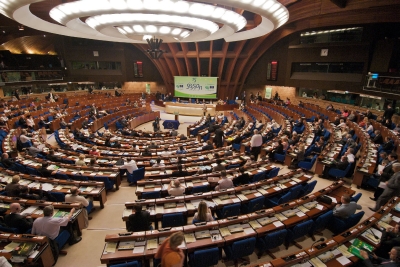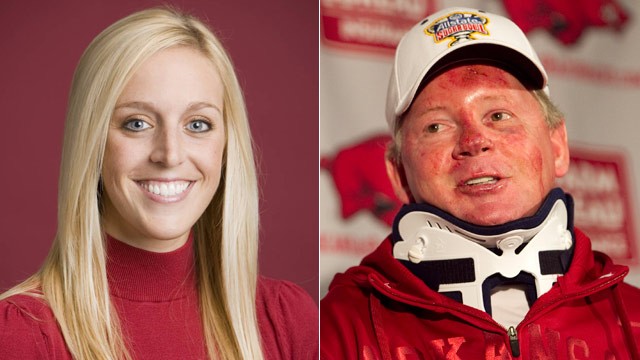Last Friday FIFA, the international association that oversees football,
released the report of its Independent Governance Committee chaired by Mark Pieth (
here in PDF). The reform process has been the subject of frequent postings on this blog and is also the focus of an academic paper of mine currently working its way through the review process.
According to FIFA the organization "
agreed to major reforms of its governance, in particular relating to ethics, audit and compliance." This is not quite accurate.
Transparency International was far more accurate when it judged that FIFA"failed to push forward a
comprehensive governance reform process today and send a strong signal
they are committed to change."

The Pieth report is remarkably thin for a document purporting to set forth a road map for institutional reform. Were it a seminar paper from one of my grad students, I'd return it with a grade of "incomplete." For instance, the FIFA governance report is but a pale shadow of the rich and detailed report recently produced by Lord Woolf on governance reform of the International Cricket Council (
here in PDF). Notably, it is also far less substantive that the "concept report" that FIFA paid Pieth to produce last year before being he was appointed as chair of the IGC (
found here in PDF).
The thinness of the Pieth report stems from the fact that it does not actually provide much in the way of details, but simply outlines proposals that have already been proposed. The details of the proposals are
in the hands of the three "task forces" established by FIFA on Statues, Compliance & Transparency and Ethics.
The Pieth report explains that:
the Task Forces have drafted a revision of the Statutes for Congress 2012 as well as several policy documents derived from the Statutes, which are due to be adopted during 2012 in order to allow the reform to be fully implemented.

The revised statutes and policy documents were not among the materials released by FIFA last Friday (I have emailed FIFA to ask for them). This means that the proposals that will be debated and discussed at the upcoming FIFA Congress in May are not in public view (and a close reading of the
FIFA press release suggests that the proposed changes have not yet even been drafted.)
So much hinges on the revisions to the FIFA statutes that the Pieth report is chock full of the expression "to be" -- as in "to be adopted" --"to be fully implemented" -- "to be put in place" -- "to be accomplished" and on and on.
The result is an incredible amount of ambiguity. For instance, the report recommends that,
The Chair and the Deputy Chair of the Audit & Compliance Committee should be independent...
This is a phrasing that sounds reasonable in principle, but the recommendation continues with,
...in accordance with the definition to be included in the FIFA Statutes;
Thus, the definition of "independent" -- which is absolutely key to the meaning of this recommendation -- has not even been defined, it is "to be included." Such lack of precision is unnecessary, as many of these issues and concepts are well established in other settings of governance and have even been applied to FIFA. For example, the report issued by Transparency International last fall (
Safe Hands- Building Integrity and Transparency at FIFA) discussed mechanisms and substance of independent oversight in detail.
Even Pieth went into far more depth on issues of independence in the "concept report" (
here in PDF) that he drafted for FIFA in advance of being appointed chair of the IGC. Contrast the following excerpt from the "concept paper" with the thin sentence from the IGC report:
[W]hen it comes to govern FIFA as an economic enterprise, the interdependence between FIFA and its members in terms of financial assistance, development programmes and realisation of tournaments raises serious independence issues. The governance systems of enterprises address such principal-agent problems by installing a board of directors, including a number of independent non-executive directors. . .
FIFA might thus consider installing a
group of persons with the function comparable to independent directors. The group could
structurally be combined with existing bodies, e.g. the Executive Committee could be
completed by independent members. Ideally, these persons would be elected by the Congress,
similar to the board of directors in a corporation, which is elected by the general assembly
upon proposal of the board or of shareholders. They should meet independence standards for
directors (i.e. no material relationship with FIFA or any of its members or the confederations
either directly, or indirectly and should have adequate professional experience to perform the
role, e.g. business administration, marketing and sales, finance and accounting, legal and
compliance. In terms of duties and responsibilities, this group would decide on the adequate
composition and organisation of corporate governance, compliance and business
administration related committees, such as the Finance Committee, the Internal Audit
Committee and the Ethics Committee (cf. above II.3.4.d)), in order to effectively and
independently supervise management and the commercial/financial operations of FIFA.
It is only a slight exaggeration to say that in the 6 months from the issuance of Pieth's "concept report" to the release of the IGC report, almost all substance on the nature of FIFA reform offered by Pieth was watered down or just lost.
From Pieth's perspective the presence of countless ambiguities gives him a bottle full of "poison pills" that will allow him to disassociate himself from FIFA at any time with his reputation (largely) intact
if when FIFA falls short of the recommendations he offered in his "concept report."
That Pieth has been fundamentally unable to change FIFA is not a surprise nor does it reflect poorly on him -- the task is simply too big for any one person or committee to take on. From a distance, it appears that Pieth quickly found himself in a bad situation from which he is only now able to extricate himself. Looking ahead, a parting of the ways, if not a messy divorce, seems inevitable.
Silvia Schenk, senior adviser for sport at Transparency International nicely summed up the report:
We had expected a more comprehensive introduction of new procedures. Too much is still unclear and key issues, such as investigations into the past allegations of corruption, have not been properly addressed.
To summarize, the Pieth report added very little if anything that is new substantively. Its fundamental ambiguities in the details of its recommendations essentially shift the focus of FIFA reform away from the IGC and out of view, kicking the can down the road. The report, and really the entire process, is a disappointment, which will not be a surprise to anyone who closely watches FIFA.































